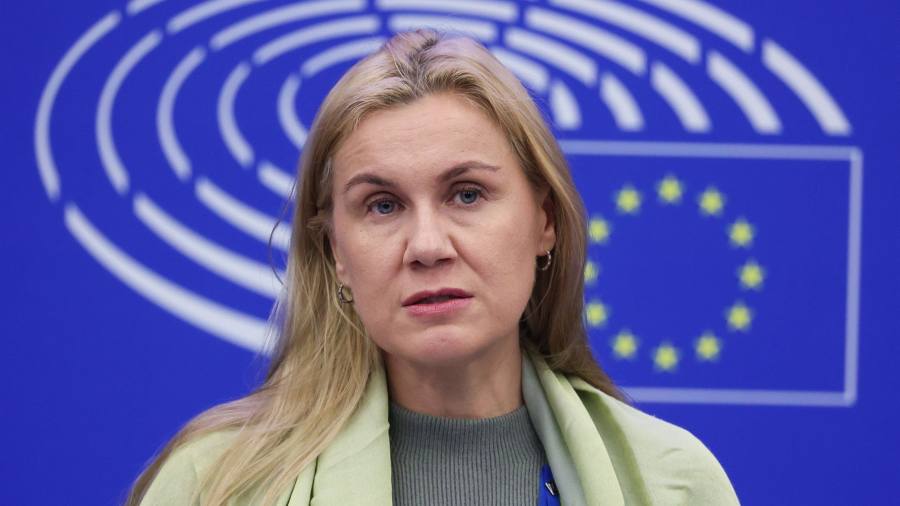
The EU’s plans to cap gas prices to avoid a repeat of the surge in energy costs seen over the summer have come under fire from critics who say it is unlikely to ever be used.
The European Commission on Tuesday proposed a cap on month-ahead wholesale gas prices at €275 per megawatt hour. However, the cap would only apply if prices were above that level for two weeks and were more than €58 per MWh higher than an average price for liquefied natural gas for 10 days.
“This is not a silver bullet,” EU energy commissioner Kadri Simson said as she announced the policy on Tuesday. “But [it] provides a powerful tool that we can use when we need it.”
However, critics labelled the plan almost useless.
Wholesale gas prices spiked to all-time highs above €300 per MWh — the equivalent of more than $500 a barrel in oil terms — over the summer after Russia cut supplies through its largest route to western Europe, the Nord Stream 1 line to Germany. Even in that instance, the cap would not have not have been triggered as prices only remained above €275 per MWh for around a week.
“It’s a joke . . . It is a proposal that won’t deliver anything useful for anyone even under the extreme scenario seen in August. This is a non-cap,” said Simone Tagliapetra, senior fellow at Brussels-based think-tank Bruegel.
“It seriously risks compromising trust in the Commission about the handling of the energy crisis,” he added.
Several diplomats from member states that support the price cap told the Financial Times that it was far too high for their governments to accept. One senior EU diplomat said setting it higher than €250 per MWh “is just another way of killing the cap”.
At least 15 EU countries including Spain and Greece had been pushing for the Commission to introduce a cap in the hope of keeping prices down for consumers over the winter and preventing social unrest.
Germany, Netherlands and Denmark are among member states that have remained sceptical about the safety of intervening in markets, arguing that lower prices would result in increased gas use and cause traders to send gas elsewhere.
If the cap does ever come into operation, Brussels said it will demand that EU capitals notify the commission of their efforts to prevent increases in energy consumption.
While European gas prices remain high — around €116 per MWh on Tuesday compared to typical costs of €5 to €35 per MWh over the past decade — fears of blackouts this winter have eased thanks to milder autumn weather and the ability of EU countries to fill up underground storage containers.
However, policymakers fear that competition for gas to refill storage next spring, when flows of piped gas from Russia may be non-existent, will cause a repeat of August’s highs.
“This is designed to be ready for next year for the filling season and for the challenging situation where we have to fill our underground gas storage without the access to Russian gas,” Simson said.
Simson said that the level of the proposed cap could be reviewed during discussions with member states.
The EU’s plans have also been criticised by energy exchanges and traders for putting the bloc’s financial stability at risk.
ICE, which operates Europe’s benchmark gas exchange, pushed back against any price cap saying that it would “result in significant margin increases which could destabilise the market”.
If concerns are raised by regulators that the cap has caused a significant increase in gas consumption, threatens financial markets or poses a risk to security of supply, the Commission said that the cap could be removed the same day and that its effects would be “constantly monitored” by a group of agencies including the European Central Bank.
The proposal will be discussed by EU energy ministers at an emergency meeting this Thursday but is unlikely to be signed off until ministers meet again on December 19.